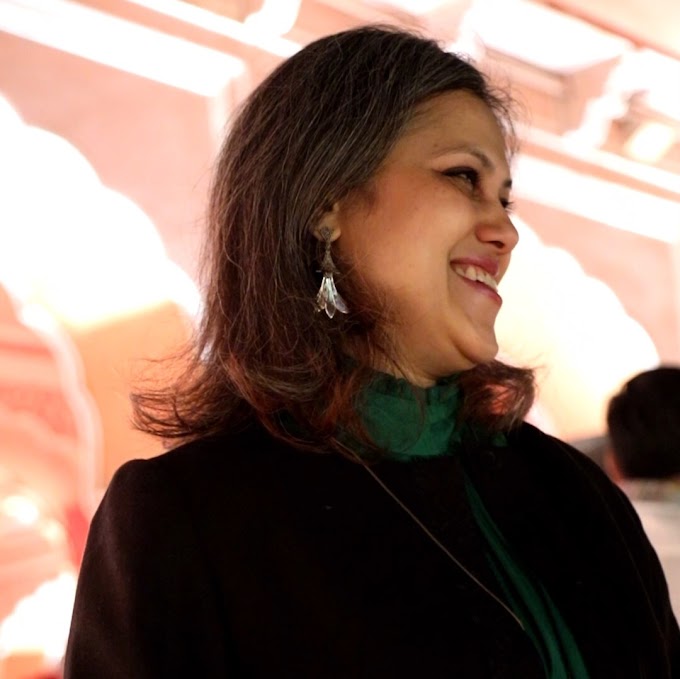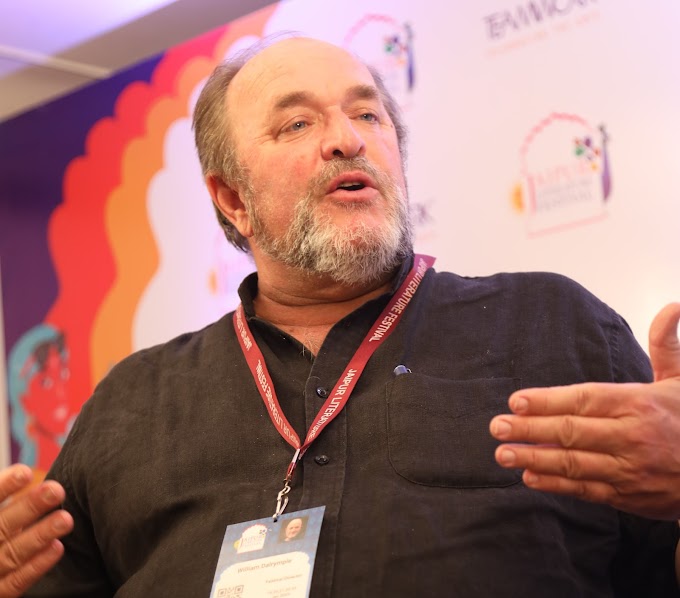There could not be a journalist alive who has not faced challenges to freedom of expression, says Suhasini Haidar. She refers to the words of Idi Amin, the Ugandan military dictator, who infamously said “There is freedom of speech, but I cannot guarantee freedom after speech.” She says every journalist has to negotiate through such challenges.
“I think in the past few years we are facing a new challenge which is that people in places of power or authority always want you to take their narrative. They always want to somehow cloud the narrative that is coming out in the public domain. What has emerged quite differently in the last few years is the idea that the media itself is being discredited, the role of the media itself is being challenged. A lot of them say I don’t need the media, some politicians say that they will deal directly with the people through social media or other means,” points out Haidar, who is the Diplomatic Editor of The Hindu and writes regularly on Foreign policy issues.
That is where she feels we face some of our biggest challenges because the journalistic process, according to her, is about spending the time and putting the effort to verify the facts and obtain authentic information.
“It should not be made possible to discredit that process by bringing in the idea that journalists are biased, journalists are presstitutes or journalists are news traders. These are all slurs that we have become used to hearing and I do believe that this is a challenge for us to fight,” she adds.
She also hosts a weekly online show "WorldView with Suhasini Haidar" and has had a promising track-record in journalism for youngsters to look up to and learn from. She points out quite plainly that there is good journalism and then there is bad journalism.
“I always feel that digital, broadcast and print are all mediums. If you are driven by the idea of good journalism, if you are passionate about the idea of doing your job as a journalist, the criticism, the trolling, the personalized attacks, accusations of personal agendas, personal bias, propaganda and all of that won’t deter you. You have to remember that this is not something new,” adds Haidar, who was part of the CNN team that won the Columbia-Dupont Broadcast Journalism Award in 2005 for coverage of the tsunami in India, and worked for CNN.com in New York for a month during its 9/11 coverage.
She reminds that more than a century ago in Germany, the press was referred to as the Lügenpresse, which means the lying media because these tactics make it easier to discredit the press. So how does one maintain one’s independence?
“I think as a journalist one should be focussed mainly on what your story is, you should make sure that your story has a context and you should also make sure that your story is verified. That process of journalism which many ridicule today tends to suggest that journalism just means tweeting or putting up a picture on instagram or a video on youtube but actually that process is important. The process of getting that photo, or making that video…”
This day,We the People of India adopted the Constitution that mandates Justice, Liberty, Equality Fraternity for all, each integral to sustaining our Republic. 🇮🇳
— Suhasini Haidar (@suhasinih) January 26, 2023
Happy Republic Day! #RepublicDay2023
Here's @the_hindu Editorial from January, 26 1950https://t.co/2b7pG9ho4e pic.twitter.com/i8PKxHiytE
Prior to her current role at The Hindu, She was Foreign Affairs editor and prime time anchor for CNN-IBN (2005-2014), and Correspondent for CNN International’s New Delhi bureau before that. In 2015, she was the recipient of ‘Prem Bhatia’ award, and has won a series of other awards for her work in Television as well. Over the course of her 28-year reporting career, Suhasini has covered the most challenging stories and conflicts from the most diverse regions including Pakistan, Sri Lanka, Libya, Lebanon and Syria. In India, she has covered the foreign affairs beat for over a decade and her domestic assignments include political profiles and in-depth reportage from conflict zones including Kashmir, where she was injured in a bomb blast in 2000.
She asserts that we must get over the idea that journalism equals fame and that a famous journalist is a good journalist.
“Eventually, fame may help you get your next story or land your next interview but fame on its own does not make any difference to your journalism and I think that people confuse the two quite a lot and it’s necessary that young students of journalism are made to understand the difference between the two.
"I often tell them that you will never get paid well enough in this profession, you will never have decent work hours, you will never have friends because you’ll reach for dinner always late. You’ll always have lots of obstacles in whatever you do in journalism. So, don’t join journalism for any of those reasons, you won’t get it. Join it because you want to be a good journalist."
In this episode of Worldview with @suhasinih we discuss #NewDelhi’s newly powered push in the neighbourhood and what lies ahead for South Asia in 2023.https://t.co/Y4c414k1ae
— The Hindu (@the_hindu) January 27, 2023
She feels that aspiring journalists should understand that journalism is a public service. It is not about the TRPs, the TRPs are just a measure, this is not about the scoops, or the important people you meet, eventually journalism is about public service, she says before adding that the focus should remain on making people more aware, more informed, making the facts more accessible, and holding power to account. She regrets that enough media institutions do not focus on these vital issues nowadays.
Suhasini Haidar is filled with optimism, especially when she meets young people who are committed to journalism. “I really do feel that there are enough people thinking about these issues and I am hopeful that journalism will find its place again.”
And, to conclude, she says:
“We are not in journalism to win a popularity contest, we are not people pleasers. We are in journalism for a very different purpose. Sometimes some of your stories are popular, sometimes people dislike you for your other stories and send you a lot of abuse. But that’s not my concern, my only concern is to do my job, which is journalism.”
(This interview took place on the sidelines of Jaipur Literature Festival 2023, and was facilitated by the organizers)




